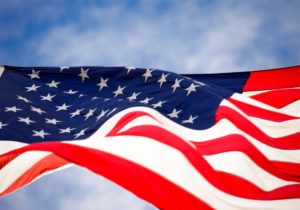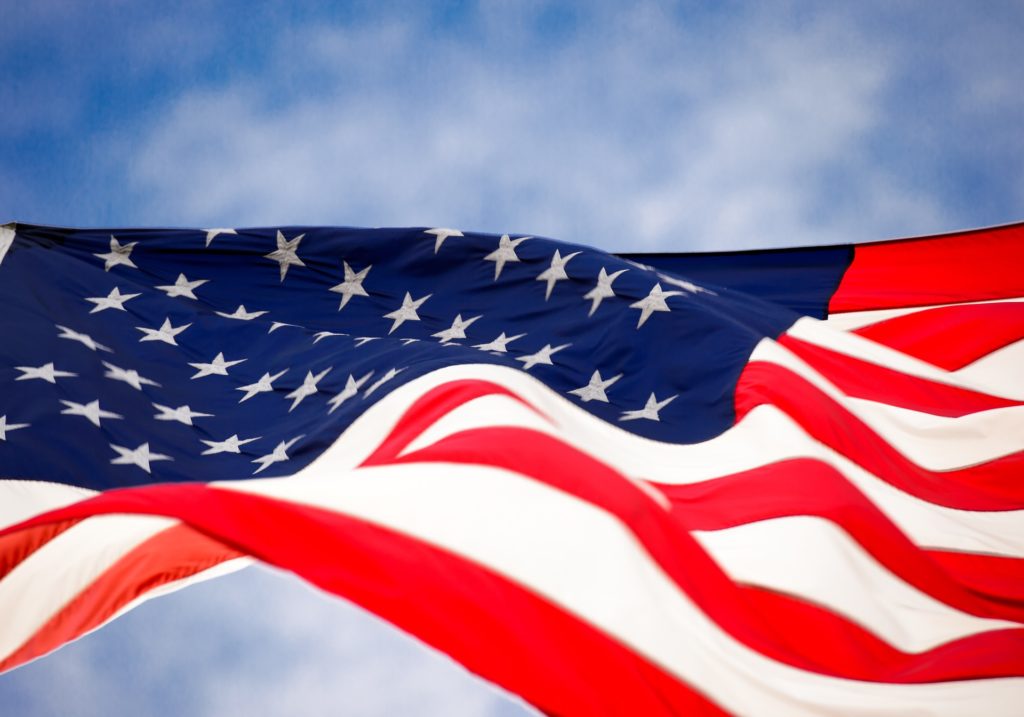The Organizational Effectiveness of Democracy
 I’ve been thinking a lot about democracy and capitalism recently so thought that I’d share a few interesting quotes—some of them conflicting messages—from some very bright fellows to whom I looked for guidance.
I’ve been thinking a lot about democracy and capitalism recently so thought that I’d share a few interesting quotes—some of them conflicting messages—from some very bright fellows to whom I looked for guidance.
Before you read them, please ponder this quote from F. Scott Fitzgerald, “The test of a first rate intelligence is the ability to hold two opposed ideas in the mind at the same time, and still retain the ability to function.”
My observation is that confirmation bias has always bedeviled us, but never more so than now.
Have a happy and thoughtful Independence Day!
“Democracy cannot succeed unless those who express their choice are prepared to choose wisely. The real safeguard of democracy, therefore, is education.”
—Franklin D. Roosevelt
“Remember, democracy never lasts long. It soon wastes, exhausts, and murders itself. There never was a democracy yet that did not commit suicide.”
—John Adams
“Real liberty is neither found in despotism or the extremes of democracy, but in moderate governments. “
—Alexander Hamilton
“A wise and frugal Government, which shall restrain men from injuring one another, which shall leave them otherwise free to regulate their own pursuits of industry and improvement, and shall not take from the mouth of labor the bread it has earned. This is the sum of good government, and this is necessary to close the circle of our felicities.”
—Thomas Jefferson
“To compel a man to furnish funds for the propagation of ideas he disbelieves and abhors is sinful and tyrannical.”
—Thomas Jefferson
“I am a firm believer in the people. If given the truth, they can be depended upon to meet any national crisis. The great point is to bring them the real facts, and beer.”
― Abraham Lincoln
“We are not afraid to entrust the American people with unpleasant facts, foreign ideas, alien philosophies, and competitive values. For a nation that is afraid to let its people judge the truth and falsehood in an open market is a nation that is afraid of its people.”
― John F. Kennedy
“Democracy is two wolves and a lamb voting on what to eat for lunch. Freedom comes from the recognition of certain rights which may not be taken, not even by a 99% vote.”
― Attributed to Benjamin Franklin and others
“Under democracy one party always devotes its chief energies to trying to prove that the other party is unfit to rule—and both commonly succeed, and are right.”
― H.L. Mencken,
“I would rather be governed by the first 2000 people in the Manhattan phone book than the entire faculty of Harvard.”
― William F. Buckley Jr.
“Restriction of free thought and free speech is the most dangerous of all subversions. It is the one un-American act that could most easily defeat us.”
― William O. Douglas
“I think passionate people seek to influence and persuade. But zealots insist on conversion. A passionate person will give it his or her best shot, but respect you if you decide to demur. However, zealots insist that not only are they right but you must be wrong.”
—Alan Weiss
“Many forms of Government have been tried, and will be tried in this world of sin and woe. No one pretends that democracy is perfect or all-wise. Indeed, it has been said that democracy is the worst form of Government except for all those other forms that have been tried from time to time.”
—Winston Churchill

coaches CEOs to higher levels of success. He is a former CEO and has led teams as large as 7,000 people. Todd is the author of, Never Kick a Cow Chip On A Hot Day: Real Lessons for Real CEOs and Those Who Want To Be (Morgan James Publishing).
Connect with Todd on LinkedIn, Twitter, call 303-527-0417 or email [email protected].

richard regan
11:23 am July 1, 2017This is a good post. However, as an American Indian I had some cognitive dissonance as I read it as I tried to rationalize the statements of your role models with their treatment of mine.
Lets look first at Thomas Jefferson.
Mr. Jefferson headlines a prestigious group of Presidents who felt American Indians should be vanquished from the face of the earth. Jefferson’s War Department in 1807 had explicit instructions that any Indian resistance should be met with “the hatchet.” Jefferson further opined, “And…if ever we are constrained to lift the hatchet against any tribe, we will never lay it down till that tribe is exterminated, or is driven beyond the Mississippi, we shall destroy all of them.”
Let’s not forget about Jefferson’s final lampoon to Native people when he described American Indians as “nothing human except the shape” and “merciless savages.”
How about good ole Abe Lincoln.
Even the President who freed the slaves could not see fit to view American Indians in the category of people who are created equal.
Lincoln was responsible for the largest mass execution in US History. In 1862, Lincoln commissioned the hanging of 38 Dakota Sioux prisoners in Makato, MN. Charged with crimes with little proof, many of these captives were non-violent cultural or religious leaders of their Tribe.
Lincoln also had the audacity in 1863 to say to a group of American Indian Chiefs who were visiting him in Washington, DC, “We are not as a race so much disposed to fight and kill one another as our Red Brethren.” These American Indians must have been puzzled by such a statement since by that time, 300,000 had died during the Civil War that happened on Lincoln’s watch.
Lincoln signed the Homestead Act and the Pacific Railway Act of 1862 which guaranteed the loss of land, natural resources, culture and language for American Indians.
Lincoln’s Indian Office to be later called the Bureau of Indian Affairs never took their government to government relationship seriously with Tribes which led to corruption among Indian agents who often stole provisions and other resources earmarked for American Indians.
The 1863 Lincoln administration was responsible for the removal of Navajos and Mescalero Apaches from the New Mexico Territory. By the time a treaty had been signed, nearly 2,000 Navajos died as a result of this relocation. Some folks call this Lincoln’s “Trail of Tears.”
Lincoln’s policy toward American Indians as one of “wards of the government.” He never viewed the civil rights of American Indians in the same way he viewed civil rights for African Americans. For American Indians, there was no Emancipation Proclamation under Lincoln.
How can we leave out from this dream team, H.L Mencken. In 1930, Mencken called Jewish people “the most unpleasant race ever heard of”. He wrote of the “negro” as a “low-caste man” who will “remain inert and inefficient until fifty generations of him have lived in civilization. And even then, the superior white race will be fifty generations ahead of him.”
You are right. Confirmation bias still bedevils us and reinforces this kind of negative messaging that keeps American Indians stuck as the most disengaged racial group in the public and private sectors.
You are right again. There is a conflict be democracy and capitalism. But there is a bigger conflict between democracy and inclusion. One that my people will never figure out.
Todd Ordal
5:11 am July 2, 2017Thanks, Richard. Flawed men, for sure! I appreciate your perspective.